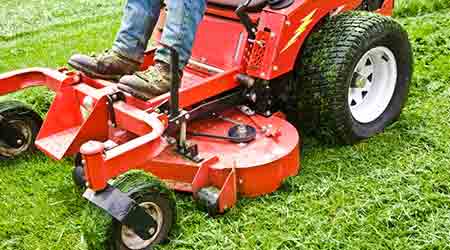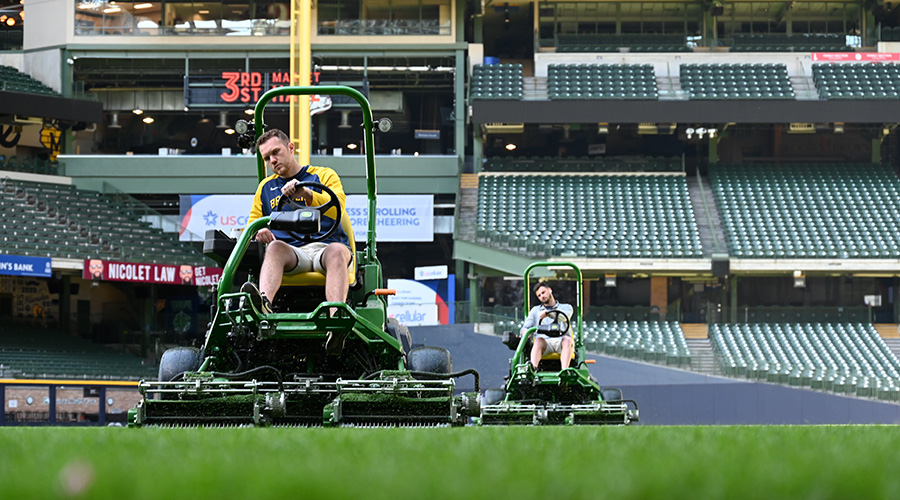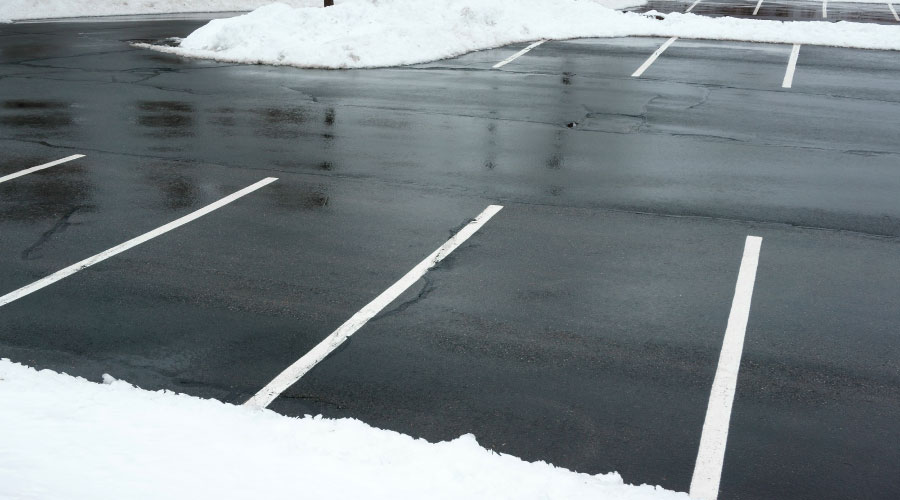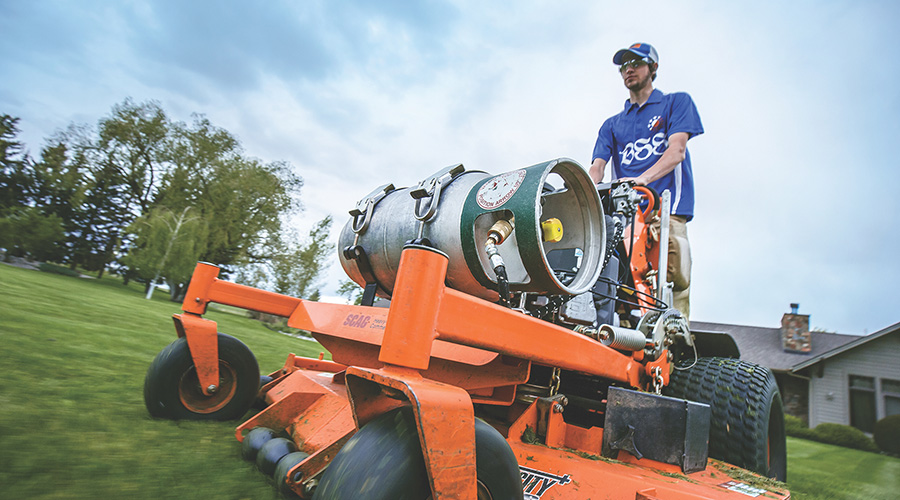Commercial Mowers and the Sustainability Connection
Part one of a 4-part article on sustainability and mowers
Maintaining healthy, attractive landscapes at institutional and commercial facilities is the highest priority for grounds managers because building occupants and the public often spend time on and around grounds. To meet these goals, facilities in many parts of the country also are committing more resources to buildings and maintaining environmentally friendly landscapes.
Most grounds departments rely on a fleet of mowers to keep turf areas looking their best throughout the year. Changing landscapes and expectations related to sustainability have increased the demand for mowers that produce fewer emissions, reduce the carbon footprint, generate less noise, and require less maintenance. In response to these demands, mower manufacturers have updated their offerings while also making them easier to use.
New-generation mowers are easier to use, have better safety features, are quieter, and offer better fuel efficiency than their predecessors. Perhaps most importantly, they have become much more versatile in recent years. This added versatility allows operators to use mowers for more tasks beyond their main function, which not only improves the mower’s value but also increases the efficiency of grounds teams. Among the most notable advances in new mowers are these:
Automated features. New-generation mowers are more user friendly because they incorporate more automated features, which makes it easier for users to operate them safely and efficiently. These features include alerts that a mechanical problem needs fixing, which take the guesswork out of operation and help prevent serious damage to the equipment. Features such as a dead man’s switch, which shuts down the mower should the operator no longer be able to function, help ensure the safety of grounds crews.
Zero-turn technology enables operators of new-generation mowers to operate the equipment more effectively on an array of terrains. These mowers feature independent motors on each of the back wheels, which allow the mower to maneuver around obstacles more quickly and easily.
Sustainable options. California has led the way in restricting grounds equipment noise and emission levels, and mower manufacturers have listened by rolling out more sustainable equipment. Manufacturers have reduced mowers’ noise levels, allowing workers to operate the equipment without disturbing occupants and visitors.
One of the most important improvements made to mowers in recent years is improved fuel efficiency. The high cost of fuel, combined with the harmful effects of carbon emissions on the environment, makes it increasingly important for mowers to offer improved fuel efficiency. Managers who are committed to sustainable grounds management should consider specifying mowers that are versatile, as well as more fuel efficient, which increases the mower’s value and decreases the carbon footprint.
Managers concerned about lower emissions and less noise also should consider specifying battery-powered mowers, which generate less noise than their predecessors because they do not run on gasoline and produce zero emissions. They also require less maintenance than a standard gasoline-powered mower.
As more facilities of all types commit to sustainable policies, the demand for battery-operated mowers and equipment that uses alternative fuels, such as propane, will continue to rise.
Related Topics:















